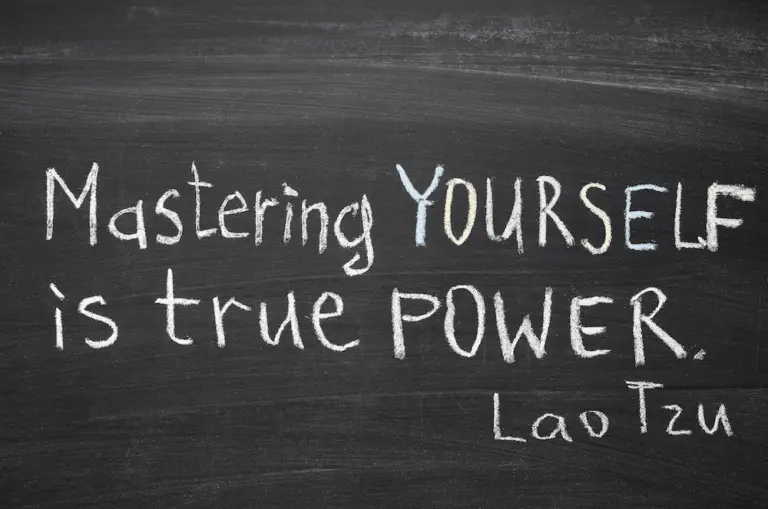What Is Emotional Abandonment? 3 Tips To Overcome It

Emotional abandonment is and emotional state in which people feel left behind. These emotions imprinted in childhood where a child felt abandoned by their parents because they were working all day, neglection, divorce, the death of a parent or because of trauma (for example, they forgot to pick them up at school) and many other instances. Many people don’t realize that they’re feeling emotionally abandoned and instead, they might feel an emptiness inside, unhappy, or feel alone even around other people, but can’t figure out what it is.
What are the symptoms of abandonment issues? Some symptoms of abandonment issues include: giving too much in relationships, inability to trust others, codependency, people pleaser, insecurity, and fear of rejection, sabotaging relationships, being in unhealthy relationships, lack of emotional intimacy.
What are some causes of emotional abandonment?
Parents have to understand that they are responsible for their kids’ physical and emotional needs. Sometimes, these needs are not satisfied because of personal events such as:
- The death of one of the parents or both, this sudden lost can produce a void fill of fear.
- Physical and sexual abuse that create mental health problems
- Divorce
Types of emotional abandonment
Some types of emotional abandonment are:
- Parents that emotionally abandon their children. This is the case when parents do not show affection, they are passive and indifferent toward them.
- Lack of affection
- Not playing with their children
- Parents that repress their feelings, therefore they send mix messages to their children
- Parents that scream at their children when they cry
- Indifference toward their children emotions
- Parents ignoring their children fear and worries
Some consequences of emotional abandonment that manifest as adults
- Difficulty in identifying and understanding their own emotions
- Feeling that something is missing
- Loneliness
- Fear of rejection
- Perfectionism
In general, the consequences of emotional abandonment are the development of low self-esteem, feelings of unworthiness, striving for perfection, and avoiding conflict. Some people might feel unloved and unlovable, and therefore they will sabotage their relationships by pushing people away. Others may fear conflict and feel more comfortable or agreeing to do things they may not want to.
3 Tips to overcome emotional abandonment
Be mindful of your past, understand the impact your parent’s behavior on your development. This means to accept your past and forgive your parents. The key here is acceptance, not approval. You are accepting your past, not approving it, but at the same time, you let go of it by forgiving your parents.
Feeling unworthy is a consequence of the relationship you had with your parents, authority figures, and even siblings. It is not enough to forgive your parents, the key is to change your beliefs and perceptions so that you can start feeling worthy of love and affection.
You have to become your best parents. This means you have to love yourself and practice self-care
You have to start to identify and change old beliefs that no longer are serving you. For example, if you believe that you do no deserve to have your needs met, you have to work on this belief and change it. Often people aren’t aware of their emotional needs and just feel that something’s missing. These emotional needs are:
- To be listened to and understood.
- To be nurtured
- To be appreciated
- To be valued
- To be accepted
- For affection
- For love
- For companionship
People that have feelings of abandonment have created false beliefs such us: I am invisible, I am unlovable, I do not have support, I do not matter, I do not trust others. It is all my fault. The results of emotional abandonment are that a person can avoid relationships altogether or become attached to another who avoids intimacy. This way a person keeps perpetuating the feelings of hopelessness and unloved.
The cycle is: I was abandoned during my childhood, I fear intimacy, I will avoid relationships or become codependent. The person fears intimacy because of the fear of abandonment, betrayal, and rejection. Fear of intimacy is a cause of codependency because a codependent person needs other people to like them to feel they are ok. They are afraid of being rejected and abandoned. Usually, they feel trap in a relationship because they do not want to be alone, and they are not willing to end a relationship even if it is abusive or painful
When a person feels emotionally abandoned might experience a significant fear of being rejected. These fears are barriers to meet new people and prevent the person to have an emotionally close relationship with another. Abandonment can lead to anger, anxiety, depression, fear of intimacy, and codependency. One of the best ways to overcome this emotion is through professional help. There are also techniques that can help to release the pain. The emotion of Emotional abandoned is a wound in a person that needs to be healed.
A humankind abandoned in its earlier formative stage becomes its own greatest threat to survival. Maria Montessori
Related Questions
What is abandonment syndrome?
For a child to grow up with responsive caregivers provides the nurturing a child needs to grow into a healthy adult. But if those earliest relationships break down, the child may experience what is known as abandonment syndrome or neglect trauma.
How do abandonment issues affect relationships?
People who suffer abandonment issues never feel safe within relationships, and always have thoughts at the back of their mind about their spouse leaving them, assume that their partner is having an affair, and that they do not really love them as they say. This can lead to self-sabotaging behaviour and development of anxiety.
Can you get PTSD from abandonment?
Yes, however it is important to consider that each each individual is unique and experiences trauma differently. Some symptoms may indicate an individual is living with PTSD of abandonment as follow:
- Low self worth
- Anxiety and insecurity
- Depression
- Inability to form healthy relationships
- Feeling not good enough, inadecuate and helpless
- Staying in unhealthy relationships
- Always being in control over other people, situation, etc
- Avoiding conflict
- Reacting too much to situations
- Feeling panic and constant fear
References
- Lancer, D. (2018). What is Emotional Abandonment?. Psych Central. Retrieved on December 23, 2019, from https://psychcentral.com/lib/what-is-emotional-abandonment/
- Lancer, D. (2018). Breaking the Cycle of Emotional Abandonment. Psych Central. Retrieved on December 23, 2019, from https://psychcentral.com/lib/breaking-the-cycle-of-emotional-abandon





